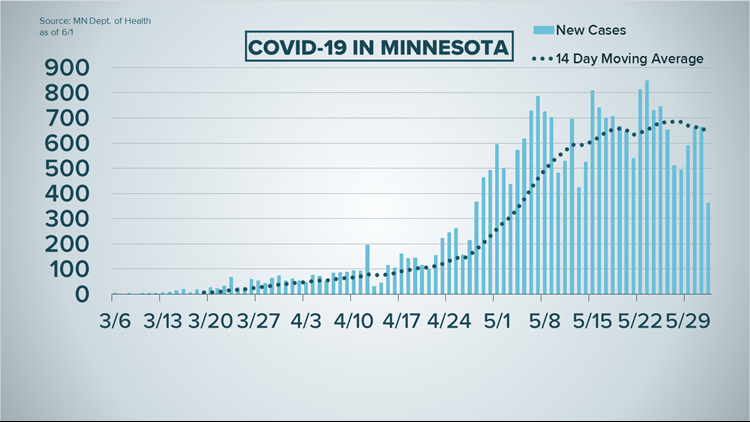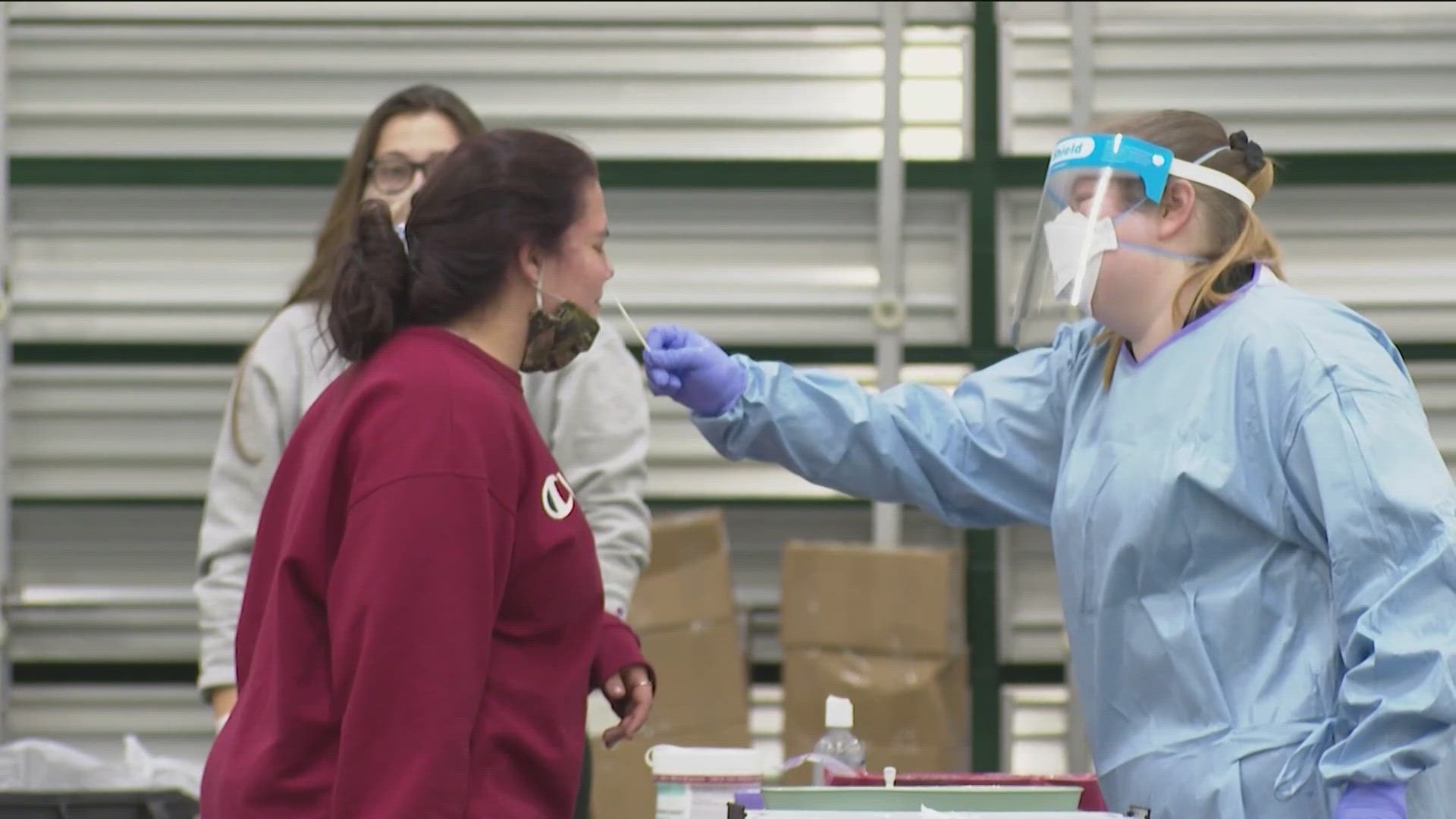ST PAUL, Minn. — Monday, June 1
- MDH Commissioner urges face masks, social distancing at protests
- African American, Hispanic communities disproportionately hit by COVID in Minnesota
- Concerns over COVID-19, safety behind transfer of former officer Derek Chauvin to Oak Park Heights prison
- Coronavirus ignited in U.S. no earlier than mid-January, CDC study says
- Lockdowns ease across Europe, Asia with new tourism rules
2 p.m.
Minnesota Department of Health Commissioner (MDH) Jan Malcolm called out "persistent and glaring" health disparities in Minnesota on her daily COVID-19 update call Monday.
She said some of these have been addressed but there is much work left to be done, as demonstrated by the massive protests across the Twin Cities and the world over the death of George Floyd.
"Minnesota's African American community represents 6.6% of our state's population but over 22% of all COVID cases and over 20% of all COVID hospitalizations," she said.
While Hispanic people make up 5.5% of Minnesota's population, they make up nearly 20% of COVID cases and over 13% of COVID hospitalizations."
Malcolm said she is concerned these communities might also face greater risk as a result of large protest gatherings this week.
"With people coming together, community members and public health workers have been reminding everyone involved that we are in the midst of a massive pandemic," she said.
Malcolm encouraged protesters to continue using cloth face masks and social distancing. She said that risks are "mitigated" by the fact that the protests are outdoors.
Earlier Monday, Gov. Tim Walz asked protesters who develop symptoms to "please isolate." He said he hasn't wrapped his mind around contact tracing for any cases that develop among the demonstrators, but "we want to massively test you."
In terms of the spread of COVID-19 in Minnesota, Malcolm said the doubling rate of cases continues to slow, a "good sign." A couple of facilities have opened up "a few surge beds" during the COVID-19 pandemic in Minnesota, Malcolm said.
Each business that reopens June 1 under new state guidelines has to have a preparedness plan, Malcolm said. They do not need to submit or have those plans approved, but have to have them ready if the state requests them.
MDH Infectious Disease Director Kris Ehresmann said it's better to think about the pandemic in "waves" versus a "peak." She added that there is a "desperate need" for blood donations, and asked the public to donate if they are able.
Dr. Ruth Lynfield, the state epidemiologist, said the state is in close contact with health care facilities.
11 a.m.
New numbers reported Monday by the Minnesota Department of Health (MDH) show the number of COVID-19 cases in the state has surpassed the 25,000 threshold.
MDH says 316 more people tested positive over the past 24-hour reporting period, bringing to 25,208 the number of those diagnosed with the coronavirus since the onset of the pandemic. Only 6,073 tests were processed in the past day, partly due to the fact that state laboratories in St. Paul are closed and not accepting samples due to unrest following the death of George Floyd.
Ten more people have died from COVID-19, bringing the state total to 1,050.
Currently, 549 people are hospitalized with the virus, 253 of them with symptoms serious enough to require treatment in the ICU. Since the pandemic hit Minnesota, 3,086 people have required hospitalization.
The number of people diagnosed with the coronavirus who have now recovered enough to no longer require isolation has increased to 19,441.
Sunday, May 31
11:15 a.m.
Officials with the Minnesota Department Health announced on Sunday that the number of positive COVID-19 cases in Minnesota has risen to 24,850, up 664 from Saturday.
The MDH says 14 more people also died, bringing the death total to 1,040.
Minnesota hospitals are currently treating 555 patients for complications from the coronavirus, which is a decrease of 34 people from the numbers reported yesterday.
The total number of people who no longer require isolation, since the pandemic began, is 18,695. That's an increase of 831 patients since Saturday.
Health officials say 257 patients are in intensive care, which is six fewer than yesterday.
The total number of tests processed by private or state labs has reached 249,519.
KARE 11’s coverage of the coronavirus is rooted in Facts, not Fear. Visit kare11.com/coronavirus for comprehensive coverage, find out what you need to know about the Midwest specifically, learn more about the symptoms, and see what companies in Minnesota are hiring. Have a question? Text it to us at 763-797-7215. And get the latest coronavirus updates sent right to your inbox every morning. Subscribe to the KARE 11 Sunrise newsletter here. Help local families in need: www.kare11.com/give11.
The state of Minnesota has set up a hotline for general questions about coronavirus at 651-201-3920 or 1-800-657-3903, available 7 a.m. to 7 p.m.



